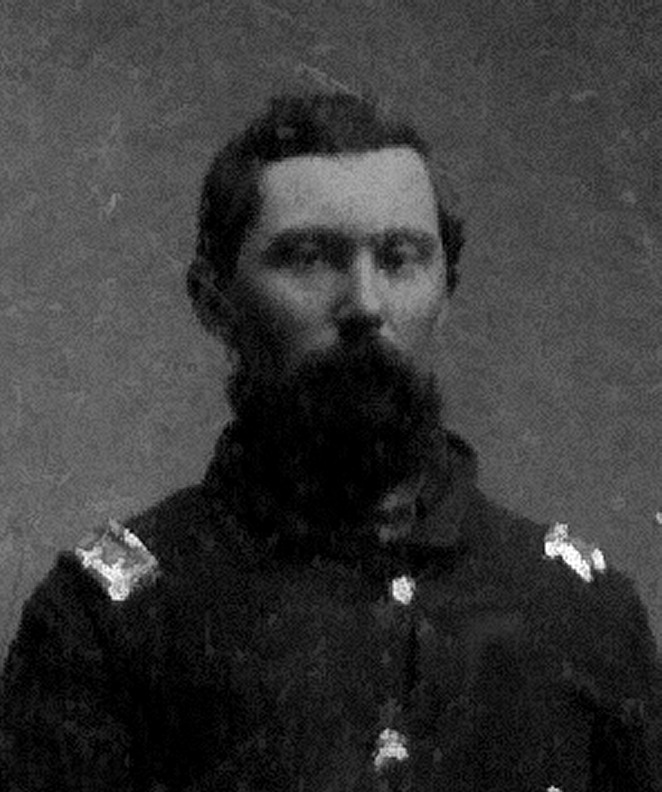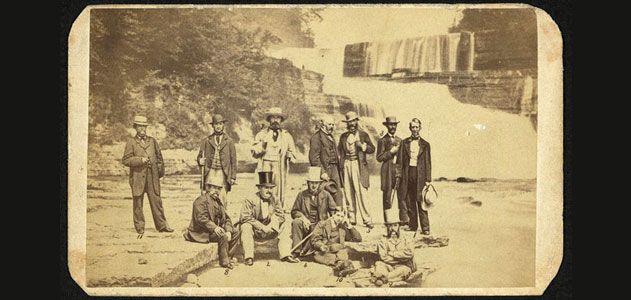Chapter 8
December, 1861
Puebla
The British, French and Spanish fleet arrived of the coast of Puebla, the primary Mexican port through which nearly all Mexican exports and imports flowed. Unopposed by any Mexican ships or troops, the Europeans calmly disembarked without incident and assumed control over the city. If there were any Mexican soldiers present, they absented themselves quickly enough. The local mayor and dignitaries eventually approached the nominal leader of the allies, a Spaniard, and it was explained that the Europeans would not molest any persons or property provided they were not interfered with.
For the most part, the Europeans followed through. Most of the allied Marines marched inland to several smaller cities and assumed control. A week after arrival, not a single drop of blood had been shed.
President Juarez dispatched a messenger to Puebla asking for a parlay, an invitation promptly accepted.
Europe
Over the past decade, Europe had politically convulsed but had avoided most major wars on the Continent.
The Crimean War was less than a generation in the past. Here Russian ambitions to gain easy access to the sea resulted in Britain, France, Austria, the Ottoman and Piedmont going to war to restrict another colonial contender from the high seas. Russia was defeated, humiliatingly so and simmered for revenge.
Britain was still psychologically recovering from the Sepoy Rebellion and the Irish Famine.
Italy had largely been united into a unified ethno-centric country for the first time since the Roman Empire only the previous year, minus Savoy and Marseille (which went to France), Venetia (still part of the Habsburg Empire) and the remnant of the Papal State. The Italians had managed to drive out the assorted local Kings and united them under one throne despite Austrian opposition only with the help of France (Marseille being the cost of this "aid").
Austria opted against pressing the matter given her problems maintaining any semblance of hegemony in Germany. Prussia was already dominating the Northern Confederation and Austria's southern allies proving less than dynamic compared to the Hohenzollerns. Most of Germany already had joined the Prussian camp. After nearly 75 years of decline following the death of Frederick II (the great) largely due to the a succession of weak rulers. Now, with men like Moltke and Bismarck leading the nation, the old Prussian military machine appeared as deadly as her diplomacy.
Oddly, the Papal State only remained in existence due to the presence of French troops. While France had sought to form a stronger Italy against the threats of Austria and Prussia, Napoleon III could not disinherit the Papacy entirely, not with France's Catholic population in opposition. Indeed, Napoleon III tried again and again to get the Pope to concentrate on his spiritual powers and cede corporeal relations to the Italian King....to no avail. Now the French presence in Rome was driving a wedge between Paris and what was viewed as her natural ally.
Humiliated at her defeat in Italy, Austria was unwilling to ally with Italy and France against Prussia's ambitions despite that plainly serving Austrian interests. It had been some time since Austria was a match for much of anyone diplomatically.
Poland had been absorbed into Russia as a mere province despite almost universal opposition. There would be no "Polish War" though as Europe had little stomach for another costly Russian campaign. Russia was also seeking a closer alliance with Greece against the Ottoman plainly in hopes of dominating the Balkans and Black Sea.
Now, two historic rivals, Britain and France, were acting in unison against Mexico (along with Spain, which had long since ceased to be a great power).
Among the most odd twists of fate in 1861 was the fact that Denmark was proving to be an unlikely source of friction on the continent. Frederick VII of Denmark (and the German Duchies of Schleswig and Holstein) was childless and the various succession laws of his three states made for a....complex....situation.
The Danes preferred Christian of Glucksberg while the Germans demanded a member of the House of Augustenburg....or just direct annexation to Prussia. Austria could hardly support the Danes for fear of losing what little German sentiment they possessed. Ironically, the current arrangement of separate governing bodies (regardless of who would inherit) between the autocratic German states and the democratic Danish government. It had been a political necessity to keep the peace after the last war. Now Britain was being put into the position of using force to ensure an autocratic succession against the will of the people, all for the benefit of an aggressive Prussian power.
When King Frederick VII, only in his early 40's, he felt he was going to have plenty of time to work out the succession. When the Parliament of Denmark updated the Constitution which would absorb Schleswig and Holstein into the nation, he felt honor bound to agree.
Puebla
The British, French and Spanish fleet arrived of the coast of Puebla, the primary Mexican port through which nearly all Mexican exports and imports flowed. Unopposed by any Mexican ships or troops, the Europeans calmly disembarked without incident and assumed control over the city. If there were any Mexican soldiers present, they absented themselves quickly enough. The local mayor and dignitaries eventually approached the nominal leader of the allies, a Spaniard, and it was explained that the Europeans would not molest any persons or property provided they were not interfered with.
For the most part, the Europeans followed through. Most of the allied Marines marched inland to several smaller cities and assumed control. A week after arrival, not a single drop of blood had been shed.
President Juarez dispatched a messenger to Puebla asking for a parlay, an invitation promptly accepted.
Europe
Over the past decade, Europe had politically convulsed but had avoided most major wars on the Continent.
The Crimean War was less than a generation in the past. Here Russian ambitions to gain easy access to the sea resulted in Britain, France, Austria, the Ottoman and Piedmont going to war to restrict another colonial contender from the high seas. Russia was defeated, humiliatingly so and simmered for revenge.
Britain was still psychologically recovering from the Sepoy Rebellion and the Irish Famine.
Italy had largely been united into a unified ethno-centric country for the first time since the Roman Empire only the previous year, minus Savoy and Marseille (which went to France), Venetia (still part of the Habsburg Empire) and the remnant of the Papal State. The Italians had managed to drive out the assorted local Kings and united them under one throne despite Austrian opposition only with the help of France (Marseille being the cost of this "aid").
Austria opted against pressing the matter given her problems maintaining any semblance of hegemony in Germany. Prussia was already dominating the Northern Confederation and Austria's southern allies proving less than dynamic compared to the Hohenzollerns. Most of Germany already had joined the Prussian camp. After nearly 75 years of decline following the death of Frederick II (the great) largely due to the a succession of weak rulers. Now, with men like Moltke and Bismarck leading the nation, the old Prussian military machine appeared as deadly as her diplomacy.
Oddly, the Papal State only remained in existence due to the presence of French troops. While France had sought to form a stronger Italy against the threats of Austria and Prussia, Napoleon III could not disinherit the Papacy entirely, not with France's Catholic population in opposition. Indeed, Napoleon III tried again and again to get the Pope to concentrate on his spiritual powers and cede corporeal relations to the Italian King....to no avail. Now the French presence in Rome was driving a wedge between Paris and what was viewed as her natural ally.
Humiliated at her defeat in Italy, Austria was unwilling to ally with Italy and France against Prussia's ambitions despite that plainly serving Austrian interests. It had been some time since Austria was a match for much of anyone diplomatically.
Poland had been absorbed into Russia as a mere province despite almost universal opposition. There would be no "Polish War" though as Europe had little stomach for another costly Russian campaign. Russia was also seeking a closer alliance with Greece against the Ottoman plainly in hopes of dominating the Balkans and Black Sea.
Now, two historic rivals, Britain and France, were acting in unison against Mexico (along with Spain, which had long since ceased to be a great power).
Among the most odd twists of fate in 1861 was the fact that Denmark was proving to be an unlikely source of friction on the continent. Frederick VII of Denmark (and the German Duchies of Schleswig and Holstein) was childless and the various succession laws of his three states made for a....complex....situation.
The Danes preferred Christian of Glucksberg while the Germans demanded a member of the House of Augustenburg....or just direct annexation to Prussia. Austria could hardly support the Danes for fear of losing what little German sentiment they possessed. Ironically, the current arrangement of separate governing bodies (regardless of who would inherit) between the autocratic German states and the democratic Danish government. It had been a political necessity to keep the peace after the last war. Now Britain was being put into the position of using force to ensure an autocratic succession against the will of the people, all for the benefit of an aggressive Prussian power.
When King Frederick VII, only in his early 40's, he felt he was going to have plenty of time to work out the succession. When the Parliament of Denmark updated the Constitution which would absorb Schleswig and Holstein into the nation, he felt honor bound to agree.




